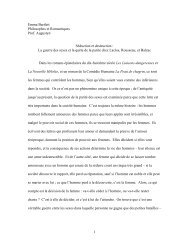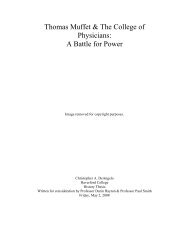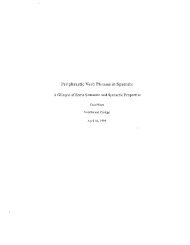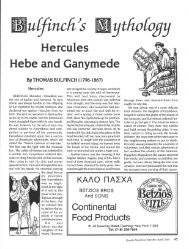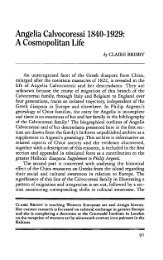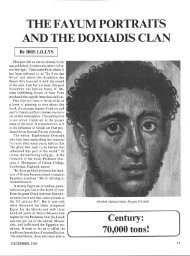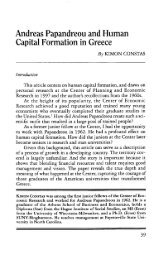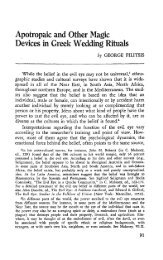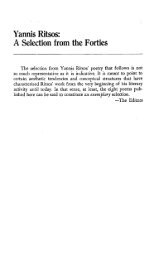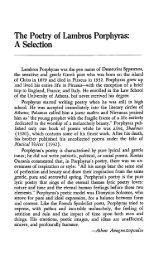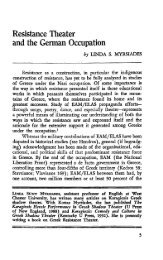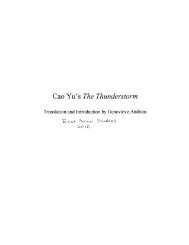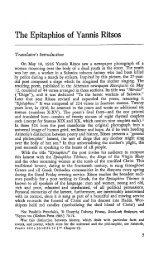Translating Neruda: Femininity and Sensuality ... - Triceratops Home
Translating Neruda: Femininity and Sensuality ... - Triceratops Home
Translating Neruda: Femininity and Sensuality ... - Triceratops Home
You also want an ePaper? Increase the reach of your titles
YUMPU automatically turns print PDFs into web optimized ePapers that Google loves.
Mueller 34<br />
grammatical phrasing of the rest of the poem, <strong>and</strong> therefore “caracola,” “la campana,” “la<br />
paciencia del trigo submarino,” “el tembloroso rey,” <strong>and</strong> “la luna” all become the<br />
subjects of the story that the narrator wants Oceana to tell, become the song of the sea.<br />
Jacketti changes the meaning of the phrase, asking the snail <strong>and</strong> bell themselves to sing<br />
rather than asking Oceana to sing songs about them. Jacketti’s reading here is consistent<br />
with a choice she makes in the first line of the poem, translating “cántame los<br />
desaparecidos / cantares” as “sing to me, the vanished / songs.” In both of these cases,<br />
Jacketti’s translation finds its home in a more st<strong>and</strong>ard formation of English than <strong>Neruda</strong><br />
uses of Spanish. This poem distinguishes itself because of the ways that <strong>Neruda</strong> plays<br />
with the roles of various parts of speech, <strong>and</strong> in choosing not to structure her translation<br />
in a way that breaks the norms of English grammar, Jacketti fails to convey the full effect<br />
of the original in the target language.<br />
In Section VIII, the addition of a colon in English clearly serves the intended<br />
purpose of maintaining the original Spanish word order, a choice that suggests some level<br />
of foreignizing intent, but the result is a slight change in the meaning in English: “tú<br />
sabes como sobre la sal ultramarina / en su nave de nieve navega el Argonauta” becomes,<br />
“You know the way: over the ultramarine salt / the Argonaut navigates his snow ship.”<br />
In Spanish, the phrase means that Oceana knows how the Argonaut moves, implying<br />
ancient memory. In the English, the implication is instead of ongoing activity, as though<br />
the Argonaut were navigating according to the guidance of Oceana. Even when<br />
maintaining a sentence structure closer to the Spanish in order to disrupt English<br />
linguistic codes in keeping with Venuti’s definition of foreignizing intent, Jacketti



